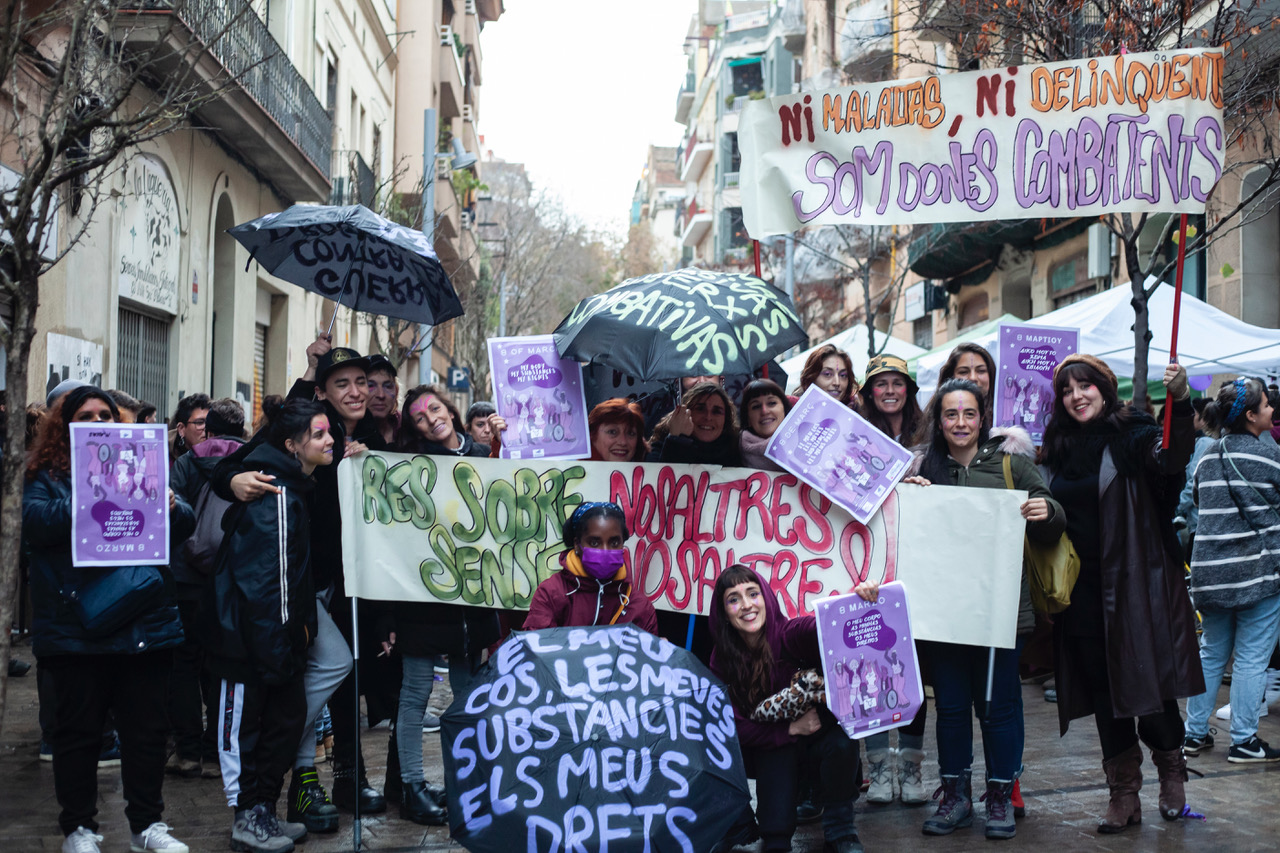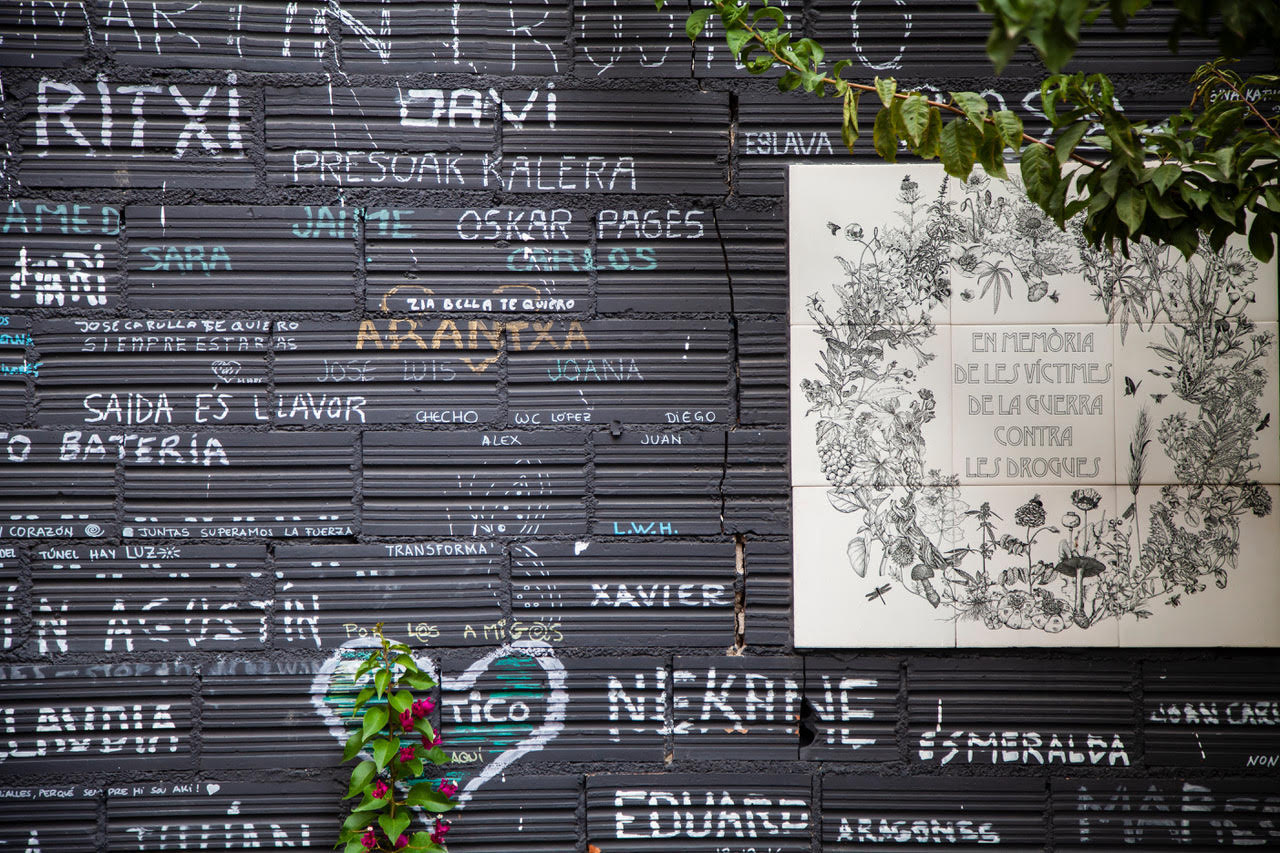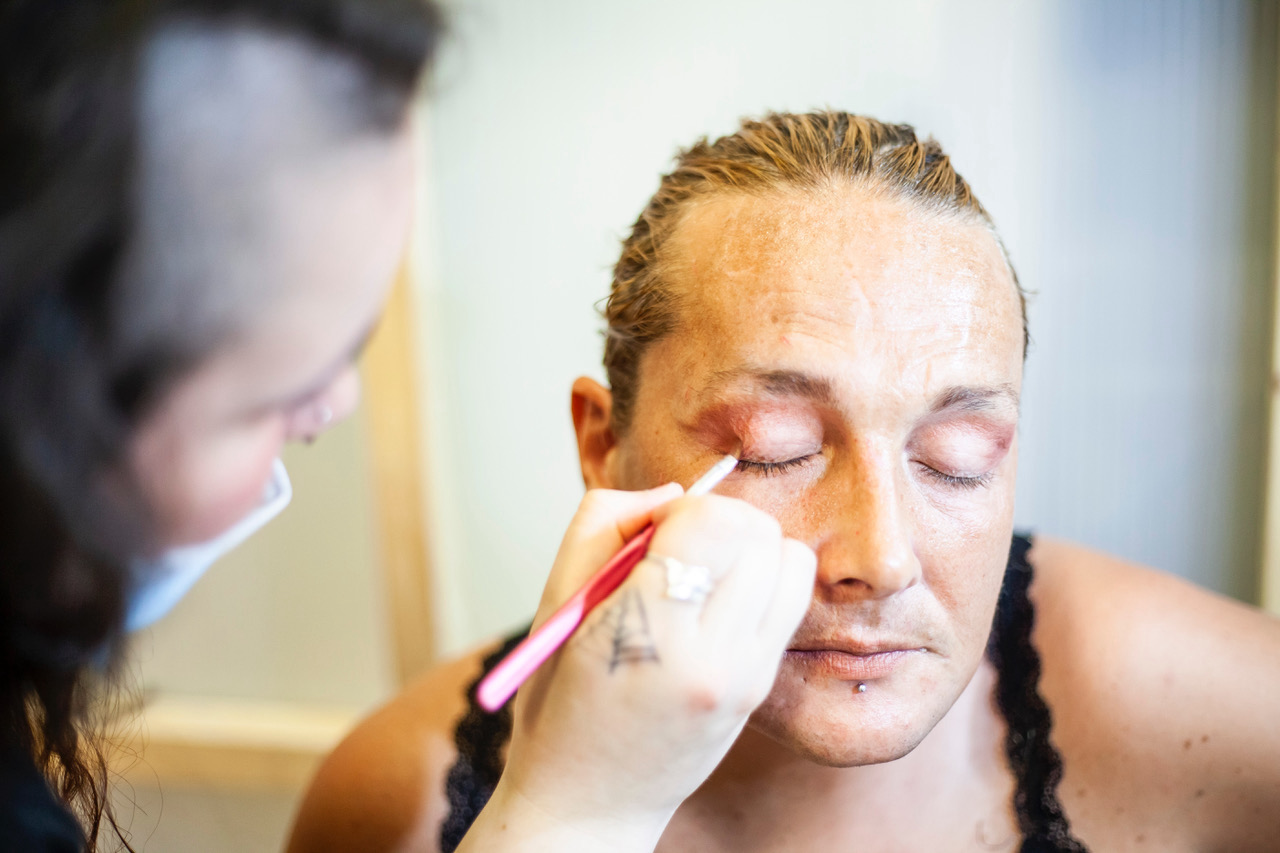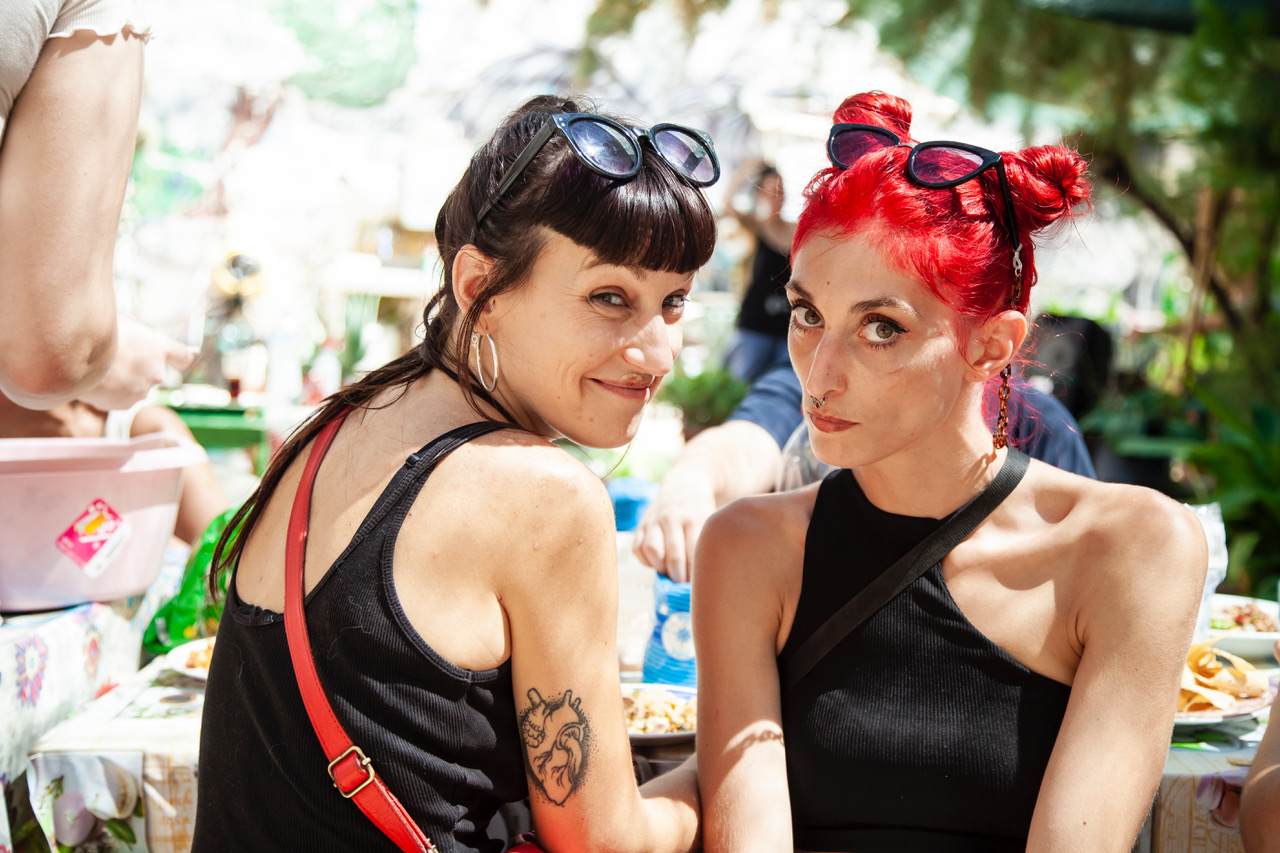Metzineres is a community for womxn using drugs and surviving violence in Barcelona. The “x” in the word womxn intentionally signifies a commitment to engage cis, trans and non-binary community members. Metzineres offers a safe consumption site, but it’s so much more than that.
The Catalan word metzineres is a historical reference—a word once used to denigrate women accused of being witches for their use of herbs as remedies, falsely portrayed as poisoning. The Metzineres cooperative is reclaiming this identity, embracing drug use as simply one characteristic of the womxn, and not the defining one. Most significantly, Metzineres does not perpetuate stigma, shame or violence around drug use within the sheltered environments it creates.
“Sheltered environments,” are more than physical spaces. They are intentionally healing spaces that serve as a counter to the violence that 100 percent of participants are surviving. Above all, Metzineres fosters community. Participants meet together in gardens and at activist events, work together on creative art projects, and hold discussions about what it means to be safe.

Five years ago, Aura Roig, now the director of Metzineres, was hired to conduct research and a pilot project for the empowerment of womxn participating in harm reduction programs in Barcelona. She had previously worked in consumption rooms in Barcelona and at Insite in Vancouver, where she and I met 10 years ago.
While sharing their unique individual experiences and their collective vulnerabilities, womxn spoke about the need to have their own space.
She began to ask local womxn using safe consumption services about their lives. She explained to me how Metzineres was born from the regular meetings that grew from these initial listening sessions. While sharing their unique individual experiences and their collective vulnerabilities, womxn spoke about the need to have their own space.
For the last five years, Metzineres has been providing much-needed “Environments of Shelter” to almost 400 womxn in Barcelona surviving violence—of whom 86 percent are experiencing homelessness, 84 percent experience drug-related problems, 59 percent have lost custody of a child, and 74 percent have a mental health diagnosis. Some have been incarcerated, and some are living with hepatitis C or HIV.
The drop-in space is open six days a week, from 2 pm to 9 pm. When you walk in, it feels light and airy. It has two long white wooden tables with folding chairs, some pine shelving, a small kitchen and a large chalkboard outlining the womxn’s personal strategies for self-defense. The center provides food and a place to socialize. You can do your laundry and take a shower, cook or reheat your own meals, and access nurses, psychologists, social workers or a lawyer. The center’s day-to-day staffing includes these professionals, as well as a manager and community technicians. Along with the drug consumption area, there is an outdoor smoking area.
Meetings also regularly take place in a local community garden. On Fridays, participants share a meal together there. On the Friday of my visit, the womxn were holding a celebration of life for a community member who had recently died from an overdose.

Memorial wall at Metzineres
Fia has been in Barcelona for two years and five months. Originally from Sweden, Fia explained to me that she has been homeless on-and-off for the last 10 years. She has tried living in collectives and squats, but would rather sleep in the park. She likes to move frequently so as not to draw attention to herself.
“I can get very scared. It definitely can be scary—but yes, I am resilient,” Fia said. “I have to decide if I’d rather sleep longer [in a park] where it might be less safe, or be woken up early [on a downtown business street] where I know it’s safer.”
“This is my social space; otherwise I do a lot of alone time.”
“Metzineres has been about finding safety and social space,” she explained. “I also come for the sleeping, the food, and to smoke weed on the patio. I love gardening and the patio, and there is always someone you can grab a coffee with. This is my social space; otherwise I do a lot of alone time.”
The Catalan government’s Department of Feminism provides an operating grant for the delivery of Metzineres’s program, which is how services are integrated into a recognized system of care for womxn experiencing violence.

Lexuri, a nurse who has worked with Metzineres for the last three months, described the program as a “revolutionary way of attending to all womxn, including trans and non-binary—wherever they may be in the community, with a more holistic approach.” For her, she said, a key difference between working with the womxn here, as opposed to in the more mainstream health care system, is the social bond that is created. Here, womxn discuss what is important to them—they control the agenda, rather than the health care providers.
“It’s a social model that fits very well.”
“This population are often mistrustful of those they speak to,” Lexuri explained. “Because at Metzineres the power is very horizontal, the womxn develop deep bonds with each other, and the health advice and support I can provide as a result is deeper—and as a result, we can attend to any number of practical concerns, including how to address domestic violence.”
Fia said she has become more of an activist in the last few years. Having left Stockholm, where it was extremely cold in the winter, and where the main homelessness mission didn’t allow any drug consumption, she has embraced Metzineres as a “melting pot of people’s creativity, where there is music, make up, hair dressing, painting, yoga, self-defense. It’s a social model that fits very well.”
All photographs courtesy of Metzineres





Show Comments